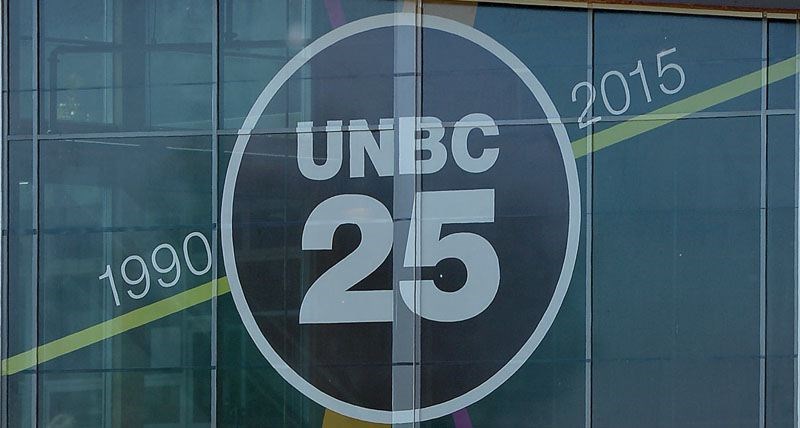After one day in mediation, the University of Northern B.C. and its faculty association await a report that could come any day now.
That's because the two sides met for a single day of their allotted 20 after a two week strike by faculty. In this case, it was the same mediator as the 23 days of negotiations between November through February.
The mediator could take the full 20 days until April 7, or issue the report sooner, said Guy Pocklington, the Labour Relations Board information officer.
"By far the most common outcome of mediation is that the mediator brings the parties to agreement," said Pocklington of the process only available for those working on a first collective agreement. "It is only when that does not happen that the three options come into play."
Those three options include: further mediation (which seems unlikely given the speed of this process), binding arbitration, or allow the sides to exercise their rights (meaning permission to strike or lockout if they choose).
In those cases, Pocklington said binding arbitration is relatively uncommon.
"The most common would be for the mediator to recommend that the parties go their own way," said Pocklington.
If that includes returning to strike, faculty association president Jacqueline Holler said the timing of the report's release would be a factor.
"It's not an automatic thing that all of a sudden you get flushed back out onto the street," she said. "I think it wouldn't be that easy of a decision."
She said past mediators have had varied approaches to how a dispute should be resolved.
"It's really difficult to second guess and say what do we think (the mediator) might recommend."
The university requested the specialized process through the Labour Relations Board, lifting the pickets lines March 19. They met on March 25.
"It was a substantial day," said Holler of the all-day meeting. "We obviously didn't reach an agreement."
Pocklington couldn't say how long a report typically takes to prepare.
If neither side agrees with the mediator's recommendations, only then would the board's associate chair step in with a decision the two sides will have to follow.
"It's really critical that we all have patience and don't get too panicked about all the unknowns in this process," Holler said.



